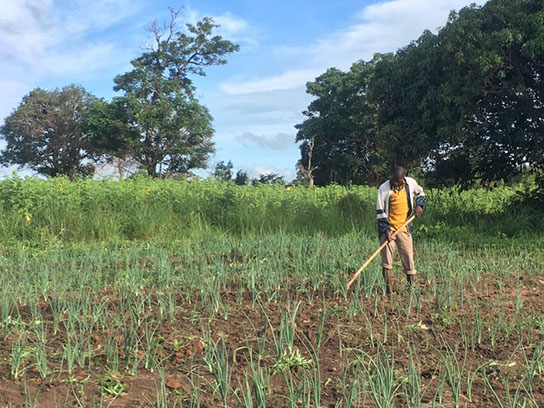
n rural Zambia, 60% of families live in extreme poverty, causing health problems in families and food insecurity. 40% of children are stunted for their age, and 53% of children under the age of five as well as 30% of women have anemia. According to the World Food Program, more than 350,000 people in the country are food insecure, meaning they have limited access to a regular supply of healthy food. Even though many rural Zambians grow their own food, crops grown by subsistence farmers normally produce low yields because of limited access to technology and information, low access to markets, and lack of infrastructure (including roads and irrigation). Because the majority of CCAP congregations are located in the rural areas of Zambia, these issues impact not only CCAP pastors but also their families, congregants, and communities.
Therefore, in order to address the difficult issues facing rural pastors and subsistence farmers, the CCAP Synod of Zambia established the Chasefu Farm near Chasefu Theological College in eastern Zambia. When Chasefu Theological College was first founded, the theological students took advantage of the available land to grow maize for their own consumption. Upon seeing this, the synod and the college began developing a skills training program for the theological students. The purpose of the program was to teach the students tailoring, carpentry, bee keeping, and agriculture, which they would use to establish an additional income source once they became pastors. The concept of having the Chasefu Farm to train theological students and subsistence farmers evolved over time from the concept of this skills training program. The farm consists of two separate units: the Chasefu Model Farm and the Chasefu Farm IGA (income generating activity).
Founded in 2014, the Chasefu Model Farm provides food to the students at Chasefu Theological College, trains subsistence farmers in the best low cost agricultural techniques to increase their income, and will provide farm training to government offices and NGOs. The CCAP Synod of Zambia envisions the Model Farm becoming a training center where courses on sustainable agriculture and other related topics are taught to smallholders. These courses would use low cost technology and thoughtful approaches, meeting the needs and resources available to subsistence farmers. In the future, the farm would like to develop demonstration plots that would model agriculture practices such as agro-forestry, conservation agriculture, and drought resistant crops.
Founded in 2016, the purpose of the Chasefu Farm IGA is to generate an income stream to sustain and grow both the Chasefu Theological College and Chasefu Farm. The Chasefu Farm IGA will use more advanced agricultural technology and, as the IGA develops, include a focus on post- harvest processing and marketing. The Chasefu IGA is currently growing maize and soybeans while partnering with Cross Border Network Africa (CBNA) to grow red onions. Participation in the red onion program requires payment of a nominal fee and, in return, CBNA provides seed and training as well as buys the onions harvested. In the future, other cash crops, such as cotton, may be grown and the farm would like to begin raising livestock.
Status: The Chasefu Farm is currently looking for opportunities to partner with other organizations to achieve the Synod’s vision.
